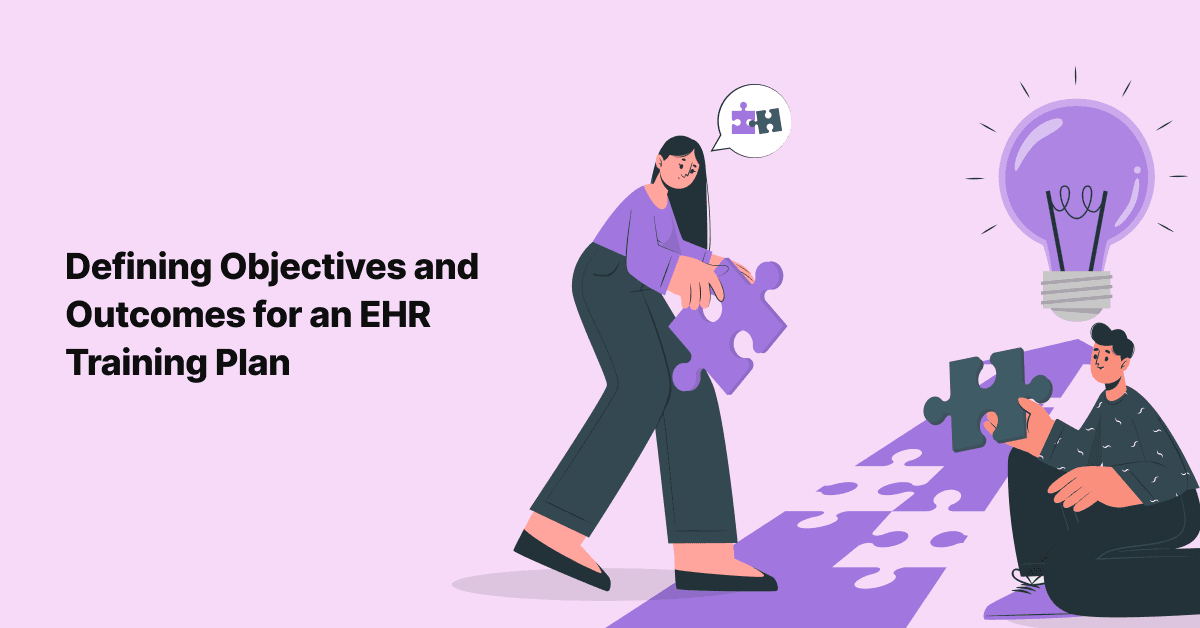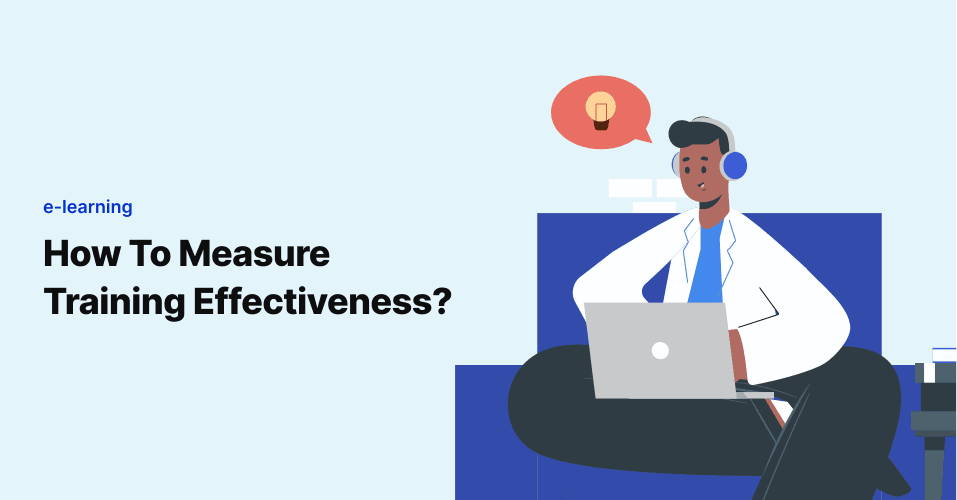
How to Define Clear Learning Objectives and Outcomes for an EHR Training Plan
In healthcare, your EHR system is your compass, guiding high-stakes decisions. EHR training acts as your …

Communication goes a long way on many fronts, and it’s certainly no exception when it comes to scheduling exhausted, busy clinicians for EHR digital learning sessions. Not only should EHR implementation efforts be socialized well in advance by hospital administration to help end users understand the value and impact of their day-to-day care duties, but training is another chance to reiterate the goal of the healthcare IT strategy for enhancing care and satisfaction for everyone involved. (Remember: quality technical solutions and innovation can be a major benefit to attract top clinical talent, so this opportunity shouldn’t be missed.)
Not only is the purpose of training important to convey, but communication regarding engagement and/or assessment expectations related to digital learning modules is also critical to mention. If physicians will be expected to demonstrate a level of mastery (even if via a simple quiz embedded into the class), make that known. Attendees may approach the training rather passively as a break from their intense clinical duties unless it’s positioned as a must-know body of knowledge by the administration. No need to treat colleagues in a condescending manner, of course, but don’t lose sight of the fact that most of us as adults aren’t used to having to demonstrate proficiency beyond college. So if that’s part of the course, make it known. This will save everyone a lot of grief and repetition.
The reality is that the vast majority of end users don’t need to know how to use every single nook and cranny of EHRs like Epic. Most healthcare technology is capable of far more than is necessary for basic point-of-care workflows, and while it makes sense for someone within a health organization to have that understanding (such as designated Super Users), virtual classes for Epic implementations should not include that much information. We can only take in and retain so much data at one time, so focusing the training content on what is most vital and used will serve everyone far better than trying to cram exhaustive sessions into the roll-out schedule.
Two key points here: brief guides, after the session. When well executed, digital learning for EHR training is really effective for most adult learners. However, since we all process information differently, it’s helpful to provide some training materials that can be reviewed as needed outside of the training session.
Given that we’re used to accessing scores of data via simple searches these days, there’s just no need for a massive training guide for most end users. Creating an attractive and organized one-page EHR training guide with key modules and functions that are available in print (and prominently available throughout the hospital) as well as digitally will ensure attendees have a swift reference point after training to reinforce their new workflows. But don’t make these available until after class so that participants will give the e-learning session their full attention and not assume that they can coast given the availability of other tools.
The key to executing digital learning for adults is to remember that we’re not generally accustomed to the classroom setting anymore…virtually or otherwise. Sure, clinicians are slightly more adept given the continuing education required for licensure, but we’ve got to treat each other with respect and value time to drive productive initiatives. EHR implementation teams will do well by prioritizing workflows and messaging and making sure that those underline every bit of training collateral and content that is incorporated into EHR digital learning sessions. Equip the masses of busy end-users to fare well post-implementation and leave the edge cases and quirks to the Super Users.
Join over 3,200 subscribers and keep up-to-date with the latest innovations & best practices in Healthcare IT.

In healthcare, your EHR system is your compass, guiding high-stakes decisions. EHR training acts as your …

Evaluating how the training was delivered in the perception of the learner is a needed observation for the …

The worlds of technology and medicine probably couldn’t seem further apart, but with the advancements in …